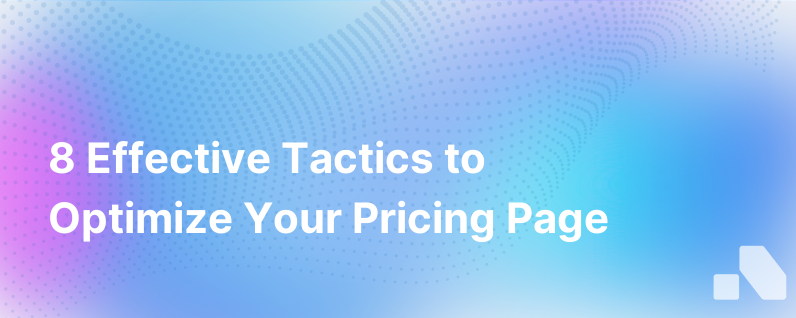
Pricing pages can make or break a sale. When visitors land on a pricing page, they're at a critical point in the conversion funnel: they're considering becoming a paying user. However, a poorly designed or confusing pricing page can just as quickly turn them away.
We've gathered up eight tried-and-true tactics for creating an effective pricing page that drives conversions and builds trust.
1. Clear, Concise Pricing
Visitors should be able to quickly and easily understand their pricing options. This means putting your prices front and center, and avoiding hidden costs or overly complex pricing structures. Reinforce clarity by outlining what each tier or package includes, and make sure the difference between them is easy to understand.
2. Highlight The Best Value Option
Among pricing tiers, one should stand out as the best value for money. This could be the most popular plan or one with a higher price but significantly more benefits. Skillfully highlighting this option can nudge visitors toward a higher price point while feeling they’re getting a great deal.
3. Use Pricing Anchors
A "pricing anchor" is a number that shoppers latch onto as they decide whether a price is reasonable or not. This pricing tactic involves setting a higher price next to the product you want to sell to make it seem like a better value. For example, a $100/month plan may seem expensive on its own, but not when it's next to a similar plan for $300/month.
4. Trial Options
Many consumers hesitate to commit to a new product without having an opportunity to try it first. Providing a free or discounted trial can be an excellent way to overcome potential customers’ objections – they get to experience the benefit of your service without risk.
5. Social Proof
Positive reviews and testimonials can go a long way in building trust and reducing decision-making anxiety. Show how others have benefited from what you offer, through testimonials, case studies, or social media updates.
6. Clearly Defined Features
To make the pricing tiers easier to understand, clearly explain what each package contains. Potential customers should not have to guess what they are getting for their money. If a feature is particularly valuable, highlight it prominently.
7. Visual Aids
People are visual creatures. Use graphics, charts, and other visual aids to help explain features, price differences, and the benefits of your product. Visual aids not only make the page more engaging but also aid comprehension, making decision-making easier for visitors.
8. Flexible Payment Options
Offering a range of payment options can help tip the balance in your favor. Consider offering monthly, quarterly, and annual payment options, as well as different payment methods. Some customers might appreciate the option to pay via PayPal or in installments instead of being limited to credit cards.
Conclusion
Optimizing a pricing page can have a significant impact on conversion rates. Being clear and transparent about pricing, offering trials, and highlighting popular options can provide visitors with the reassurance they need to take that final step and become customers. Remember, your pricing page is one of your most important sales tools, and thus it deserves as much thought as the rest of your marketing strategy.
These pricing page tactics aren't just ideas—they're actionable strategies that can make a difference for your business. Consider how you might adjust your current setup using the tactics we've talked about. However, remember that every audience is different. What works for one business may not work for another. So, always test changes to see what works best for your target audience.
One of the benefits of B2B platforms like Aomni is that it offers features that can help you develop an optimal pricing page. It provides real-time account research and actionable competitive insights that can be leveraged in your pricing strategy. Regardless of your approach, Aomni can be a valuable asset for helping you to navigate the increasingly competitive B2B marketplace.
Remember, the goal of a pricing page isn't just to present prices—it's to drive conversions. With careful planning and strategy, you can create a page that's not just informative, but also optimized to drive growth for your business.